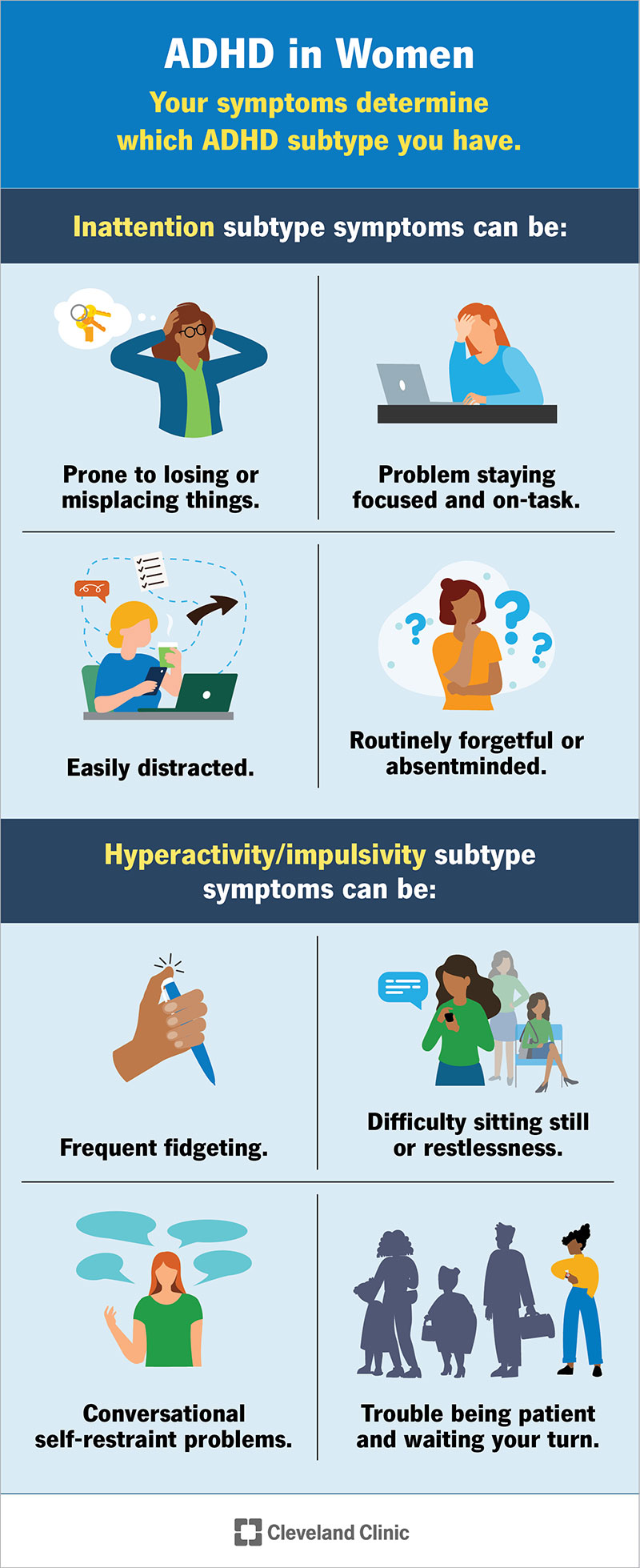Understanding Adult ADHD: Diagnosis, Treatment, And Coping Strategies

Table of Contents
Diagnosing Adult ADHD
Accurately diagnosing Adult ADHD is the crucial first step towards effective management. The symptoms often manifest differently in adults compared to children, making diagnosis more complex.
Symptoms of Adult ADHD
Adult ADHD symptoms can be broadly categorized into inattentive and hyperactive/impulsive presentations, or a combination of both. It's important to note that not everyone experiences all symptoms to the same degree. A comprehensive evaluation is key to differentiating ADHD from other conditions that may share similar symptoms.
- Difficulty Focusing: Struggling to maintain attention during tasks, conversations, or meetings. This can manifest as frequent mind-wandering, difficulty following instructions, and easily becoming distracted. For example, an adult with ADHD might find themselves constantly checking their phone during a work presentation or struggling to complete a complex project.
- Impulsivity: Acting without thinking, often leading to regrettable decisions. This can include interrupting others frequently, making rash financial decisions, or engaging in risky behaviors.
- Hyperactivity: Excessive restlessness, fidgeting, and difficulty remaining still. While less outwardly visible in adults than children, this can manifest as an internal sense of restlessness, difficulty relaxing, or pacing.
- Organizational Challenges: Struggling with planning, prioritizing tasks, and managing time effectively. This often leads to missed deadlines, cluttered spaces, and a feeling of being overwhelmed.
- Procrastination: Chronic delay in starting or completing tasks, even when aware of the consequences.
- Forgetfulness: Frequently misplacing items, forgetting appointments, or struggling to remember details.
- Emotional Dysregulation: Experiencing heightened emotional responses, mood swings, and difficulty managing emotions.
The Diagnostic Process
Getting an accurate Adult ADHD diagnosis typically involves a multi-faceted approach:
- Self-assessment questionnaires: Tools like the Adult ADHD Self-Report Scale (ASRS) can help identify potential symptoms and provide a starting point for discussion with a healthcare professional.
- Clinical interview: A detailed discussion with a psychiatrist or psychologist to explore symptoms, their impact on daily life, and medical history.
- Psychological testing: Neuropsychological testing may be used to assess cognitive functions like attention, memory, and executive functioning. This helps rule out other conditions and confirm the presence of ADHD.
- Ruling out other conditions: It's crucial to exclude other conditions that can mimic ADHD symptoms, such as anxiety, depression, or learning disabilities.
Seeking professional help from a qualified healthcare provider, such as a psychiatrist or psychologist specializing in ADHD, is essential for a proper diagnosis.
Treatment Options for Adult ADHD
Effective treatment for Adult ADHD often involves a combination of medication, therapy, and lifestyle changes.
Medication for Adult ADHD
Medication is a common treatment option for many adults with ADHD. The most commonly prescribed medications are stimulants and non-stimulants.
- Stimulants: These medications, such as methylphenidate (Ritalin, Concerta) and amphetamine (Adderall, Vyvanse), increase the levels of dopamine and norepinephrine in the brain, improving focus and attention.
- Non-stimulants: These medications, such as atomoxetine (Strattera) and guanfacine (Intuniv), work differently than stimulants, affecting neurotransmitters in the brain to improve attention and reduce impulsivity.
Potential side effects vary depending on the individual and medication. Regular monitoring by a healthcare professional is crucial to manage side effects and adjust medication as needed.
Therapy for Adult ADHD
Therapy plays a vital role in managing ADHD symptoms and developing coping skills.
- Cognitive Behavioral Therapy (CBT): Helps individuals identify and change negative thought patterns and behaviors that contribute to ADHD symptoms.
- Behavioral Therapy: Focuses on teaching practical strategies for managing impulsivity, improving organization, and enhancing self-control.
- Coaching: Provides personalized guidance and support to help individuals develop strategies for achieving their goals and managing daily challenges.
Lifestyle Changes for Adult ADHD
Lifestyle modifications can significantly improve symptom management.
- Regular Exercise: Physical activity helps regulate mood, improve focus, and reduce hyperactivity.
- Healthy Diet: A balanced diet supports brain function and overall well-being.
- Sufficient Sleep: Adequate sleep is crucial for concentration, mood regulation, and cognitive performance.
- Stress Management Techniques: Practices like mindfulness, yoga, and meditation can help reduce stress and improve emotional regulation.
Effective Coping Strategies for Adult ADHD
In addition to professional treatment, adopting effective coping strategies can significantly improve daily functioning.
Time Management Techniques
Effective time management is crucial for individuals with ADHD.
- Prioritization: Identifying and focusing on the most important tasks first.
- Breaking Down Tasks: Dividing large tasks into smaller, more manageable steps.
- Using Planners and Reminders: Utilizing technology and paper-based tools to track appointments, deadlines, and tasks.
- Time Blocking: Allocating specific time slots for particular tasks or activities.
Organizational Strategies
Improving organizational skills can reduce stress and improve efficiency.
- Decluttering: Creating a tidy and organized environment to reduce distractions and improve focus.
- Using Visual Aids: Employing visual cues, checklists, and color-coding to improve memory and organization.
- Creating Routines: Establishing consistent daily routines to provide structure and predictability.
- Employing Organizational Tools: Utilizing apps, systems, and other tools designed to enhance organization.
Stress Management and Self-Care
Prioritizing self-care is essential for managing ADHD symptoms and maintaining overall well-being.
- Regular Exercise: Physical activity helps regulate mood, improve focus, and reduce hyperactivity.
- Mindfulness Practices: Mindfulness meditation and other mindfulness techniques can help improve focus and emotional regulation.
- Healthy Diet: Nourishing your body with healthy foods supports brain function and overall well-being.
- Sufficient Sleep: Adequate sleep is crucial for cognitive function and emotional regulation.
- Setting Boundaries: Learning to say no and prioritize self-care to prevent burnout.
Conclusion
Understanding Adult ADHD involves recognizing its unique symptoms, utilizing effective diagnostic methods, and implementing a comprehensive treatment plan that includes medication, therapy, and lifestyle changes. By employing practical coping strategies and prioritizing self-care, adults with ADHD can significantly improve their quality of life. Don't struggle alone – take the first step towards managing your Adult ADHD today. Learn more about Adult ADHD treatment options and seek professional guidance if you suspect you may have the condition. Finding support and understanding is crucial for navigating the challenges of Adult ADHD and living a fulfilling life.

Featured Posts
-
 Paralympian Sam Ruddock Missing A Las Vegas Mystery
Apr 29, 2025
Paralympian Sam Ruddock Missing A Las Vegas Mystery
Apr 29, 2025 -
 Fiscal Support And Inflation The Ecbs Post Pandemic Assessment
Apr 29, 2025
Fiscal Support And Inflation The Ecbs Post Pandemic Assessment
Apr 29, 2025 -
 From Street Sweeper To Celebrity The Inspiring Journey Of Macario Martinez
Apr 29, 2025
From Street Sweeper To Celebrity The Inspiring Journey Of Macario Martinez
Apr 29, 2025 -
 Ryan Reynolds Celebrates Wrexham Afcs Historic Promotion To The Football League
Apr 29, 2025
Ryan Reynolds Celebrates Wrexham Afcs Historic Promotion To The Football League
Apr 29, 2025 -
 Pete Rose Pardon Trumps Plans And The Impact On Baseball
Apr 29, 2025
Pete Rose Pardon Trumps Plans And The Impact On Baseball
Apr 29, 2025
